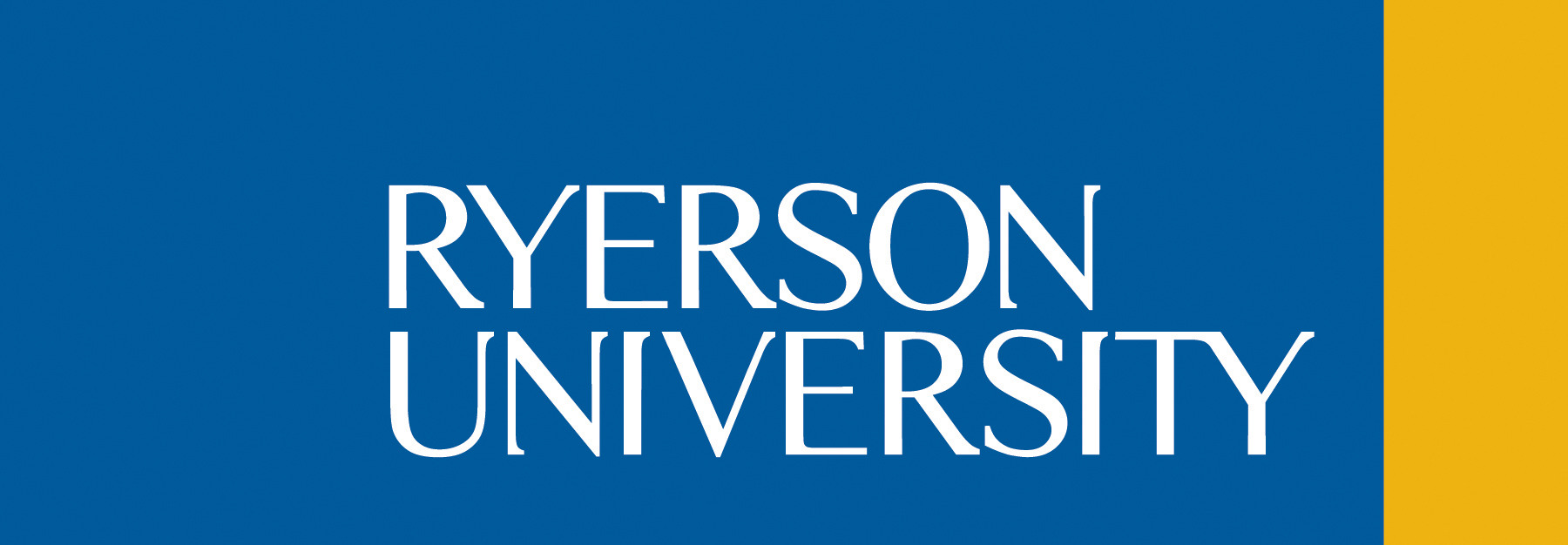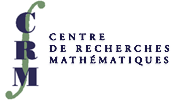 |
|
||||
Biographies
PUBLIC LECTURES

Kumar Murty
Kumar Murty got his B.Sc from Carleton University and Ph.D. from Harvard
University. After a year each at the Institute for Advanced Study
(Princeton) and the Tata Institute of Fundamental Research (Mumbai), he
joined Concordia University as an NSERC University Research Fellow. In
1987, he moved to the University of Toronto where he has been ever since.
He is currently the Chair of the Department of Mathematics.
Kumar's field of research is number theory, algebraic geometry and their applications to information technology. For many years, he was Editor-in-Chief of the Journal of the Ramanujan Mathematical Society and an editor of Transactions of the American Mathematical Society.
He is a Fellow of the Royal Society of Canada and a Fellow of the Fields Institute. This year, he was elected a Foreign Fellow of the National Academy of Sciences (India). Other honours include a Steacie Fellowship, the Coxeter-James Prize, the Balaguer Prize (joint with his brother Ram) and an "Inventor of the Year" award of the University of Toronto.

Chris Wild
Chris Wild did his first degrees at the University of Auckland,
New Zealand followed by a PhD in statistics at the University of Waterloo
before returning to Auckland in 1979. His main research interests are in
developing methods for fitting regression modelling in response-selective data
and missing data problems, and in statistics education with particular emphasis on
statistical thinking and reasoning processes.
He is a Fellow of the American Statistical Association, a Fellow of the Royal Society of New Zealand, and an Editor of the International Statistical Review. He is a former President of the International Association for Statistics Education, a former Head of Auckland's Department of Statistics and co-led the University of Auckland's first-year statistics teaching team to a national Tertiary Teaching Excellence Award in 2003.
PLENARY LECTURERS
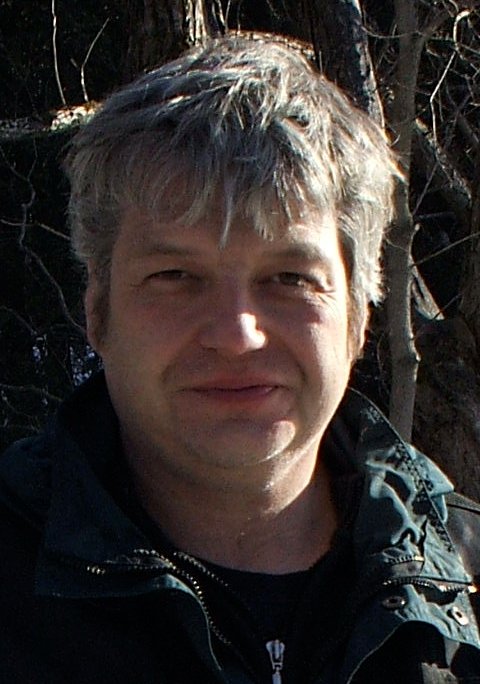
Hermann Eberl
Hermann Eberl studied Mathematics and Mechanical Engineering at TU Munich in his native Germany,
graduating as Diplom-Mathematiker in 1994. Subsequently he obtained a PhD from the
Faculty of Civil Engineering at the same institution in 1998,
followed by a postdoctoral appointment in the Department of Chemical Engineering at
Delft UT (Netherlands). He worked as a Junior Scientist at the
Institute of Biomathematics and Biometry of the German National Research Center
for Environment and Health between 2000 and 2002 and joined the
Department of Mathematics and Statistics of the University of Guelph as faculty member in 2003.
Currently he is a Professor there and holds the Canada Research Chair for Computational Biomathematics.
His research area is Mathematical Biology, usually involving strongly nonlinear Partial Differential Equations and Scientific Computing. Much of his research is application driven, with current focus on the two rather disjoint topics of complex microbial populations and honeybees and their interactions with their physical environments.

Christina Goldschmidt
Christina did both her undergraduate and postgraduate studies in Mathematics at the
University of Cambridge, completing her PhD in 2003 under the supervision of Professor James Norris.
She did postdoctoral work at Paris VI, Cambridge and Oxford before taking up
a lectureship at the University of Warwick. She moved back to Oxford in 2011 and
is currently a lecturer in the Department of Statistics and a tutorial fellow at Lady Margaret Hall.
Christina's work lies in probability theory, with something of a combinatorial bias. Her current research focus is on large random discrete structures, in particular scaling limits for various models of random graphs. She has also worked extensively on understanding processes modelling random coalescence and fragmentation.
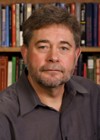
Gordon Swaters
Professor Swaters received the Honours BMath in Applied Mathematics from the
University of Waterloo and received the PhD in Applied Mathematics and Physical Oceanography
from the University of British Columbia. Dr. Swaters completed post-doctoral studies in the
Department of Earth, Atmospheric and Planetary Sciences at the Massachusetts Institute of Technology.
Since joining the University of Alberta, Gordon has held concurrent visiting positions at the National Center for Atmospheric Research in Boulder, USA, the Isaac Newton Institute for the Mathematical Sciences in Cambridge, UK, and the French Institute for the Research and the Exploitation of the Sea in Brest, France.
Dr. Swaters’s research, which is an interdisciplinary blend of applied mathematics, physical oceanography and computational science, is focused on understanding the planetary-scale dynamics of ocean currents – a key component in Earth’s evolving climate. Professor Swaters has received the CAIMS|SCMAI Research Prize from the Canadian Applied and Industrial Mathematics Society and the President’s Prize from the Canadian Meteorological and Oceanographic Society for his contributions to theoretical ocean and atmospheric dynamics.
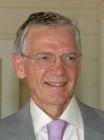
Craig Tracy
Craig A. Tracy was born in England in 1945, but immigrated to the United
States as an infant. Tracy grew up in Missouri where he attended the University
of Missouri at Columbia graduating in 1967 as an O. M. Stewart Fellow
with a B.S. degree in physics. He began his graduate studies as a Woodrow
Wilson Fellow at SUNY at Stony Brook where he wrote his doctoral dissertation
under the supervision of Barry M. McCoy. After postdoctoral positions
at the University of Rochester (1973–75) and the C. N. Yang Institute for
Theoretical Physics (1975–78), Tracy was at Dartmouth College for six years
before joining UC Davis in 1984. He is currently Distinguished Professor of
Mathematics at UC Davis.
In 2002 Tracy was awarded, jointly with Harold Widom, SIAM’s George Pólya Prize and in 2007 the Norbert Wiener Prize in Applied Mathematics (also shared with Widom). He is a member of the American Academy of Arts and Sciences. Tracy has two daughters and five grandchildren. He is married to Barbara Nelson, and they reside in Sonoma, California.

Hugh Woodin
Distinguished Professor, University of California, Berkeley, since 2003.
Past appointments:
Professor of Mathematics, 1989 - 2003;
Chair, Department of Mathematics, 2002 - 2003;
Chair, Department of Mathematics, 2010 – 2011;
Education: Ph.D., University of California Berkeley, 1984
Research interest: Set Theory
Honors and awards:
Section Speaker, International Congress of Mathematicians 1986 Berkeley, USA;
Carol Karp Prize, Association for Symbolic Logic, 1989;
Senior Humboldt Research Award, 1996;
Elected Fellow, American Academy of Arts and Sciences, 2000;
Section Speaker, International Congress of Mathematicians 2002 Beijing, China;
Honorary Professor, Academy of Mathematics and Systems Science (Chinese Academy of Sciences), 2010;
Plenary Lecture, International Congress of Mathematicians 2010 Hyderabad, India
SCIENTIFIC DIRECTORS
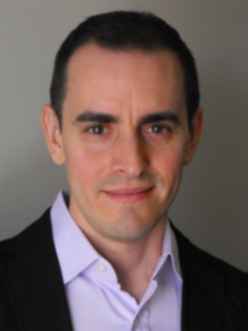
Anthony Bonato
Anthony Bonato’s research is in Graph Theory, with applications to the modelling of
real-world complex networks such as the web graph and on-line social networks such
as Facebook and Twitter. He has authored over 70 papers in journals and conference
proceedings with 30 co-authors. His books "A Course on the Web Graph" (2008) and
“The Game of Cops and Robbers on Graphs” (2011, joint with R. Nowakowski) were
published by the American Mathematical Society. Bonato’s research is supported by
grants from NSERC, MITACS, and Ryerson. He has delivered over 20 invited
addresses at international conferences in North America, Europe, and India. He is the
founding member of the research group Graphs at Ryerson (G@R) and a member of
Ryerson Applied Mathematics Laboratory (RAMLab). Bonato has supervised 6
postdoctoral fellows, two doctoral students, and 8 Masters students. In 2009, he was
awarded a Ryerson Faculty SRC Award for excellence in research.
Bonato is currently the Chair of the Department of Mathematics at Ryerson, and coEditor-in-Chief of the journal Internet Mathematics. He served on a number of University, Faculty, and Department committees at several universities across Canada, serves on the Board of Directors of Mprime, and completed a term on the Board of Directors of MITACS in 2008. In 2007, he co-chaired the 5th Workshop on Algorithms and Models for the Web Graph, held in San Diego. He taught over 40 undergraduate and graduate courses at Ryerson, Dalhousie, Laurier, Mount Allison, and Waterloo, and was recently nominated for TVO’s Best Lecturer Competition, 2010.

Juris Steprans
Juris Steprans finished his undergraduate education at the
University of Waterloo and earned a doctorate from the
University of Toronto in 1982 under the supervision of F. D. Tall.
He has been a faculty member in the Department of
Mathematics and Statistics at York University since 1982.
His research interests revolve around the applications of set theoretic methods to problems in analysis and, to a lesser extent, in algebra. He has served on the CMS Board of Directors and chaired the CMS Publications Committee. He has also served NSERC and the NSF in various capacities, as well as having been the Deputy Director and, for a short period the Acting Director, of the Fields Institutes from 2006 to 2010.

